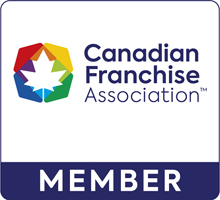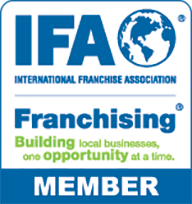What You Need to Know About Retail Franchising in Canada
Retail franchising is a vast sector that comprises both store and non-store retailers within the broader trade, transportation, and utilities category.
The North American Industry Classification System (NAICS) lists 75 retail store types, which include:
- furniture stores,
- electronics,
- health and personal care stores,
- clothing and general merchandise stores,
- florists and gift stores,
- photographic services,
- new car dealers,
- used car dealers,
- computer and software stores,
- home centers
- and many others.
Often, retail franchising overlaps with other types of franchising. If you run a pet store, for example, you would be both in the pet franchising industry and the retail franchising industry.
Strong Industry
The retail industry in Canada is currently strong, according to a recent report by Colliers International, which says retail sales growth across the country continues to build on the positive performance of the last two years.
The report, released in the fall of 2017, predicted national retail sales to grow by 7% to reach approximately $590 billion by the end of 2017.
Although Canada lost a long-time retail stalwart in Sears in 2017, Colliers’ report says that is not indicative of the retail climate in the country, as Sears “has long been a minor player among numerous strong competitors.”
Colliers also predicted positive overall retail sales growth in each province for 2018, with particularly strong years in BC and Ontario, which account for just over 50% of Canada’s total sales volume.
Some of the factors that are positively affecting national retail sales include:
- The weak Canadian dollar resulting in fewer people heading down south to shop in the United States;
- The Liberal government’s proposed increase to the Child Benefit Grant, meaning families will have more money to spend, and;
- Continued strong residential real estate values and rising equities markets leading to feelings of job security and consumer confidence.
Eight percent of the Canadian Franchise Association’s corporate members are in the retail sector and nearly a quarter of prospective franchisees in the country are looking to invest in a retail franchise. With such a positive outlook for 2018, now is an ideal time to get into retail franchising in Canada.
Store Retailers
Store retailers have a storefront at a fixed location that is meant to attract walk-in customers. They have large displays of merchandise and many of them use mass media advertising like radio and TV. While they usually sell merchandise to the general public for personal use, some also sell to business and/or institutional clients. They commonly supply after sales service like repair and installation.
Non-Store Retailers
Similar to store retailers, non-store retailers are meant to sell merchandise to the general public, but rather than doing so from a fixed location, they employ different tactics, like "infomercials," direct-response advertising, catalogs, door-to-door solicitation, in-home demonstration, selling from portable stalls like mall kiosks or street vendors, vending machines, and, of course, online retailing.
Economics and Demographics
Like many other businesses, retail franchises are affected by the strength of the economy. When the economy is strong, people have more disposable income to spend on merchandise. When the economy weakens, that disposable income dries up and customers usually opt to hold onto their money rather than spend it.
Demographics also play a significant role in the success of a retail franchise. Opening in the wrong neighborhood can spell disaster for a retail outlet. Changing demographics of the country will also have an affect on the retail industry. As the population changes, retailers have to adapt or fade away. This makes franchising especially attractive in the retail industry because the larger franchise company will most likely be conducting regular market research to stay on top of changing demographic trends in the country.
Location
To run a successful retail franchise, you have to have products that people want to buy and outstanding customer service, but location is also key. A poor location will sink a business even if it has the best products and the best customer service.
Prime locations are in areas that are highly visible, have a significant amount of traffic and are easily accessible. Knowing the best place to open a location is one huge advantage of going with a franchisor for opening a retail outlet. Most franchisors conduct market and demographics research in any areas they are looking to expand into and they’ll share that information with potential franchisees. Most franchisors retain the right to approve a selected site and many help with things like financing, leasing, build outs, renovations and grand openings.
No matter what type of retail franchising you want to get into, it’s important to connect with the right franchisor to fit your personal goals. Sign up for a free FranNet franchise search and consultation today and let us help you on your way to business ownership.





